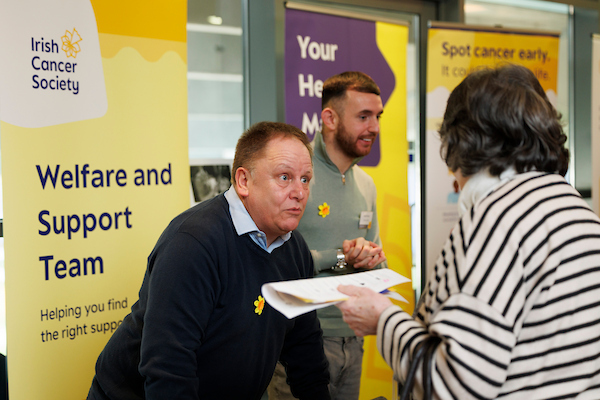Recurrence
This is when cancer comes back after treatment.
How might I feel if my cancer comes back (recurs)?
It can be a terrible shock and hard to deal with emotionally if you find out your cancer has come back.
After having successful treatment, it can be devastating to have to face another diagnosis. You may feel overwhelmed that you have to try and find the strength to deal with this again.
You may also feel less hopeful this time or have less faith in your medical team.
Getting some support from friends and family, support services or professionals can help you deal with your emotions at this time.
We have advice on coping with your emotions and where to get help.
Why does cancer come back after treatment?
Your cancer doctors will always do everything to try and kill the cancer and reduce the possibility of it coming back again, but sometimes cancer can come back. This is known as recurrence or relapse. This can happen for a number of reasons.
Surgery aims to remove all the cancer from the body. Often you will have chemotherapy and/or radiotherapy to try and destroy any cancer cells that remain.
Although the surgeons do their best to remove all of the cancer, sometimes there may be cancer cells left, which are not visible to the surgeon. These are called micrometastses. These can cause the cancer to return.
Cancer can also sometimes come back after radiotherapy, chemotherapy or other cancer drug treatments. This happens when some of the cancer cells remain active during these treatments and later regrow. In general, treatment doesn’t kill every single cancer cell in our body.
Our immune system will usually kill off the remainder of cancer cells or they may die naturally, but unfortunately this isn’t always the case. This means there’s a chance the cancer might re-grow and come back in the future.
Types of recurrence
- Local recurrence: The cancer grows again in the same part of the body where you had cancer before.
- Metastasis (secondary cancer): The cancer comes back in a different part of the body.
Treating recurrent cancer
If cancer comes back, it is often possible to treat it again. Treatment may be:
- To control the cancer and slow its growth
- To help with symptoms
- To cure the cancer. This usually only applies to some types of local recurrence (cancer coming back in the same place as before)
Often treatment is with chemotherapy or other cancer drugs. These aim to slow the growth of the cancer for as long as possible.
You may need a different treatment from the one used to treat you before. For example, if your tumour has stopped responding well to a chemotherapy drug you had before or if using the same treatment is likely to cause difficult side-effects.
You may also be suitable for a clinical trial, so ask your consultant about this.
If you have been diagnosed with metastatic cancer
If you have a diagnosis of metastatic cancer, we have information and services to support you.
Related links



Talk to a Cancer Nurse

Support Line
Our Daffodil Centres

